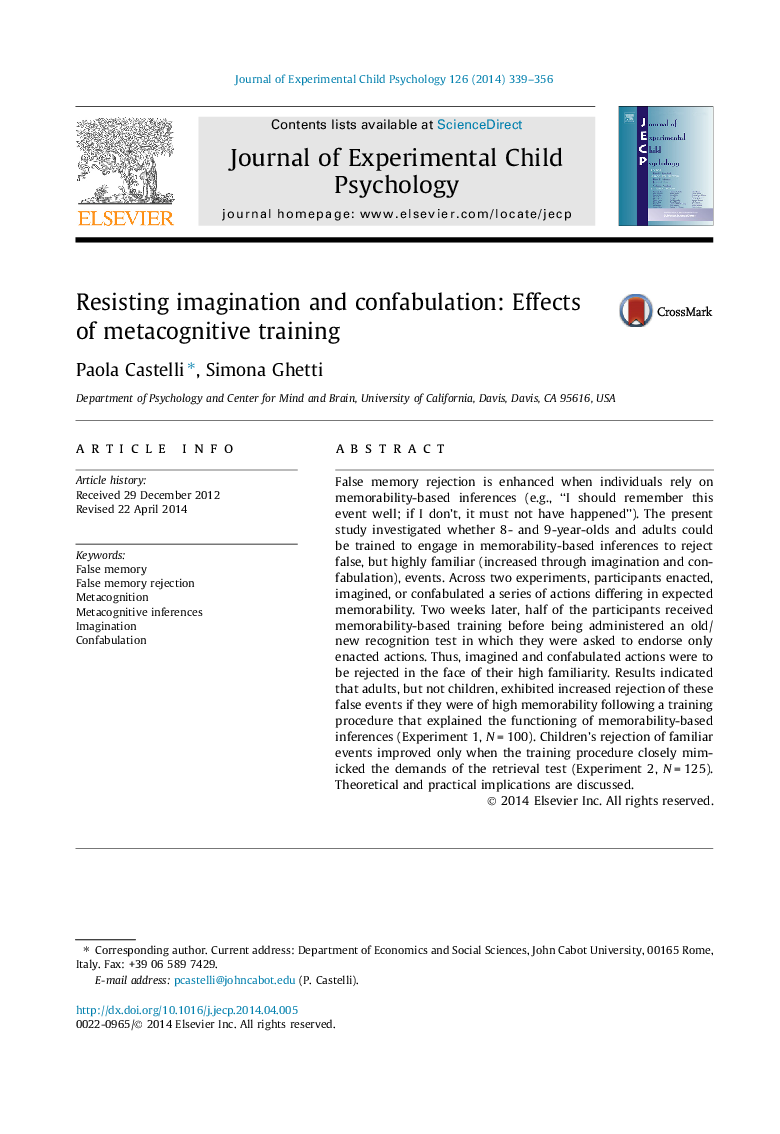| Article ID | Journal | Published Year | Pages | File Type |
|---|---|---|---|---|
| 7275408 | Journal of Experimental Child Psychology | 2014 | 18 Pages |
Abstract
False memory rejection is enhanced when individuals rely on memorability-based inferences (e.g., “I should remember this event well; if I don't, it must not have happened”). The present study investigated whether 8- and 9-year-olds and adults could be trained to engage in memorability-based inferences to reject false, but highly familiar (increased through imagination and confabulation), events. Across two experiments, participants enacted, imagined, or confabulated a series of actions differing in expected memorability. Two weeks later, half of the participants received memorability-based training before being administered an old/new recognition test in which they were asked to endorse only enacted actions. Thus, imagined and confabulated actions were to be rejected in the face of their high familiarity. Results indicated that adults, but not children, exhibited increased rejection of these false events if they were of high memorability following a training procedure that explained the functioning of memorability-based inferences (Experiment 1, NÂ =Â 100). Children's rejection of familiar events improved only when the training procedure closely mimicked the demands of the retrieval test (Experiment 2, NÂ =Â 125). Theoretical and practical implications are discussed.
Related Topics
Social Sciences and Humanities
Psychology
Developmental and Educational Psychology
Authors
Paola Castelli, Simona Ghetti,
